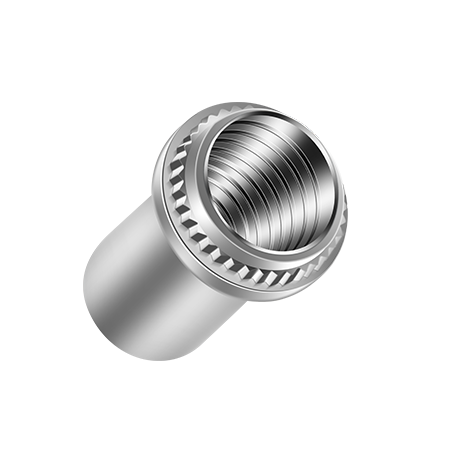
The Waterproof Nut is a high-performance fastener designed to provide robust water resistance in various applications such as electronics, automotive, marine, and outdoor equipment. Specifically designed to prevent moisture, dust, and other liquids from entering threaded connections, it ensures the long-term stable operation of devices in harsh environments.

Product Features
1.Effective Waterproofing
Waterproof nuts are designed with a specialized sealing structure to provide strong waterproof performance, ensuring that moisture cannot penetrate the equipment even in humid and harsh conditions. Whether exposed to seawater, rain, or humidity, these nuts maintain their sealing capability, offering superior protection.
2.Corrosion Resistance
Typically made from high-quality materials such as stainless steel (304, 316) or copper alloys, waterproof nuts exhibit exceptional corrosion resistance. Even in high humidity or corrosive environments, these fasteners maintain long-term durability and will not corrode from water or chemicals.
3.Wide Compatibility
Waterproof nuts are available in various sizes and specifications, including M6, M8, M10, and can be used across different industries such as electronics, automotive, and outdoor equipment. The ability to select the right waterproof nut size ensures versatility and adaptability for various applications.
4.Enhanced Sealing
Many waterproof nuts are equipped with rubber washers or O-rings, which provide additional sealing protection. When the nut is tightened, these components work together to create a tight, water-resistant seal, further preventing moisture intrusion and enhancing overall performance.
5.High-Temperature and Low-Temperature Performance
These waterproof nuts are designed to withstand extreme temperatures. They are commonly used in high-temperature environments such as automotive and industrial equipment, while also performing reliably in cold environments, making them ideal for outdoor equipment and marine applications.
6.High Reliability
Manufactured with strict quality control, waterproof nuts are designed with excellent tensile strength and shock resistance. They can endure high-pressure and high-vibration environments without loosening, ensuring long-term stability of the equipment.
Technical Specifications
1.Material: Stainless steel (304, 316), copper alloy, aluminum alloy, etc.
2.Size: Customizable per client needs, with common sizes including M6, M8, M10, etc.
3.Waterproof Rating: IP65, IP67, IP68, etc.
4.Temperature Range: -40°C to +120°C (higher temperature resistance available upon request)
Applications
1.Electronics: Waterproof nuts are widely used in smartphones, computers, outdoor speakers, and other electronic products to prevent water damage in humid environments.
2.Automotive Industry: Used in automotive electronics, lights, engines, and other parts to provide waterproof sealing, preventing moisture from entering electrical connections and causing short circuits or corrosion.
3.Marine Industry: Waterproof nuts are applied in ship equipment, hull fasteners, and other components to ensure reliable water protection and extend the lifespan of maritime devices.
4.Outdoor Equipment: Outdoor equipment such as camping lights and outdoor speakers use waterproof nuts to ensure they operate reliably in various weather conditions.
5.Construction: Used in waterproof installations for construction equipment, especially in moist or underwater environments.
Installation Notes
1.Ensure that the waterproof nut is tightly fitted with the bolt to avoid seal failure.
2.Use appropriate tools for tightening to maximize the sealing effect.
3.Regularly check the waterproof seal, especially when used in high-humidity, high-temperature, or high-vibration environments.